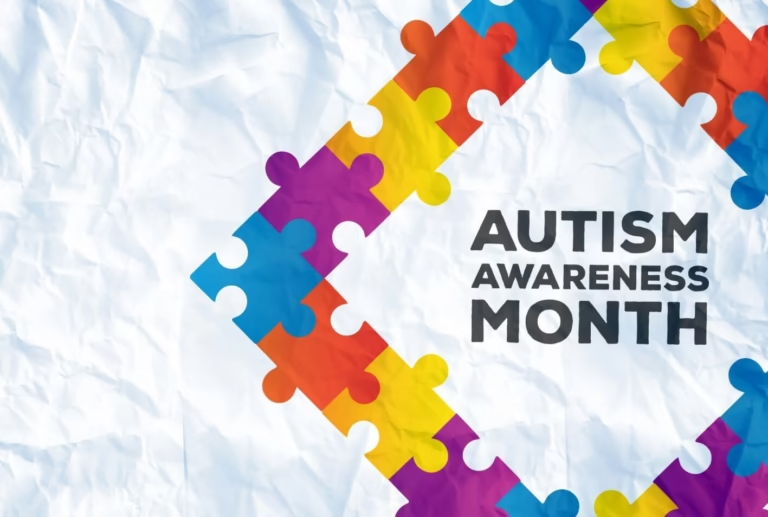Compared to when I was born in the 1980s, our understanding of autism has come a long way. Back then, autism was largely defined by stereotypes and lazy misconceptions, often shaped by portrayals like the autistic savant character in the 1988 film Rain Man. There’s no doubt that awareness and understanding have improved greatly since then.
However, the statistics in this blog reveal a concerning reality: a persistent and alarmingly wide gap in employment outcomes still exists between autistic and non-autistic individuals. This stark divide shows that even in the 2020s, we still have a long way to go toward true inclusivity in the workplace.
This article gathers autism employment statistics from a variety of trusted sources and presents them in a visually engaging and easy to understand way. The data comes from reputable sources, including the recent Buckland Review of Autism Employment in the UK, evidence submitted to the UK Parliament, and insights from the National Autistic Society.

The Percentage of Autistic Adults in Employment
Only 30% of adults on the autism spectrum have jobs, compared to 50% of all people with disabilities and 80% of those without disabilities.
Why does this matter?
- It highlights the disparity that autistic people face in gaining employment compared to other groups of disabled and non-disabled people.
- It demonstrates the urgent need for employer initiatives to improve workplace inclusion and support for autistic employees.
- It evidences the need to roll out training and support programs to the majority of autistic people to try and close the employment gap.

The Risk of an Autistic Graduate Still Being Unemployed After 15 Months, Compared to a Neurotypical Counterpart
Autistic university graduates are 100% more at risk (twice as likely) of remaining unemployed 15 months after graduation compared to those without disabilities.
Why does this matter?
- It suggests that different career pathways may be needed to support autistic graduates.
- It highlights potential problems with career services and recruitment for neurodivergent university leavers.
- It shows the need for job placement schemes aimed at supporting autistic graduates.

The Percentage of Autistic Employees Who Say They Are Not Completely Open About Their Diagnosis at Work
In the workplace, 65% of autistic adults are not fully open about their diagnosis with everyone in their organization.
Why does it matter?
- It shows that autistic people continue to feel a stigma about fully disclosing their condition at work, possibly driven by a fear of judgement and negative consequences.
- It demonstrates the need for workplaces to deliver cultures that promote openness and safety for autistic staff.
- It highlights the importance of having policies and training focused on providing inclusivity for neurodivergent employees.


The Percentage of Autistic Employees Keeping Their Autism a Complete Secret at Work
Around 10% of employed autistic adults choose not to disclose their autism to anyone whatsoever at work.
Why does it matter?
- It proves that some autistic people probably fear negative repercussions from disclosure.
- It highlights a need for better education programs in workplaces.
- It suggests that having confidential disclosure and accommodations policies could help to reduce the secrecy around autism.

The Percentage of Autistic Employees Offered Any Reasonable Accommodations After Disclosure
Of the autistic employees who do disclose their autism to their employers, only 11% are subsequently offered any reasonable accommodations.
Why does it matter?
- It suggests that the majority of autistic employees are not receiving adequate support for their needs.
- It suggests that most employers do not fully understand their duties under the equality laws.
- It points to the need for clearer guidance for employers on workplace adjustments for disabilities.

The Percentage of Autistic People Wishing for More Support and Acceptance at Work
Half of autistic people believe that having supportive, understanding, and accepting colleagues would be the most helpful thing for their success at work.
Why does it matter?
- It highlights the need for understanding and acceptance to enable autistic employees to find success.
- It demonstrates that as a reasonable accommodation, interpersonal support is more important than having aids and equipment at work.
- It suggests that encouraging empathy and team building could hugely impact autistic outcomes in the workplace.

The Autistic Pay Gap
Among disability groups, autistic individuals experience the widest pay gap, earning on average a third less than their non-disabled counterparts.
Why does it matter?
- It reflects a systemic problem with autistic employees being undervalued and underpaid in the workplace.
- It shows a need for pay equity initiatives aimed at neurodivergent employees, as as has previously been used to bridge the gender pay gap.
- It suggests that better salary transparency and anti-bias policies could help reduce the gap.

The Percentage of Autistic Employees Who Are Bullied or Harassed at Work
Nearly half, or 48%, of autistic employees report experiencing workplace bullying and harassment.
Why does it matter?
- It highlights the vulnerability of autistic employees to bullying and harassment at work.
- It proves the need for better anti-bullying policies and enforcement to deal with the issue.
- It shows the need for workplaces to have cultures of respect and diversity to reduce the instances of bullying and harassment.

The Percentage of Autistics and Caregivers Who Feel Anxious About Applications and Interviews
73% of autistic young people and their parents or caregivers experience anxiety over the job application and interview processes.
Why does it matter?
- It shows that traditional recruitment processes can be challenging and stressful for autistic candidates.
- It demonstrates the need for more accessible and neurodivergent-friendly recruitment practices.
- It suggests that providing autistic candidates with interview training and preparation programs could help to reduce their anxiety and improve their rates of employment.

The Percentage of Employers Who Say Autistic Employees Won’t ‘Fit In’ With Their Teams
34% of employers feel that autistic employees are unlikely to fit well within their teams.
- It suggests that stereotypes still persist about autism that may be influencing employers’ views.
- It shows there is a need to educate employers about the strengths and skills autistic employees bring.
- It reflects the need for team-building initiatives and inclusive practices to improve the cohesion of teams that are made up of neurotypicals and neurodivergents.

The Percentage of Employers Concerned About Their Ability to Provide Autistic Employees With Adequate Support
60% of employers would be concerned about not providing adequate support for autistic employees.
Why does it matter?
- It shows that many employers lack the knowledge and confidence needed to support autistic employees.
- It indicates that employers need more guidance and resources to help them with supporting autistic employees.
- It highlights the value of having specialized training programs that teach employers about autism and employment support.
Autism Employment Statistics: How Can You Help?
These autism employment statistics highlight the harsh reality that exists for many autistic people. By sharing them with others, you are helping to lift the lid on autism discrimination and promote better awareness and understanding. Together we can build a future where autistic people are welcomed and empowered in every workplace.
Sources:
The Buckland Review of Autism Employment






















